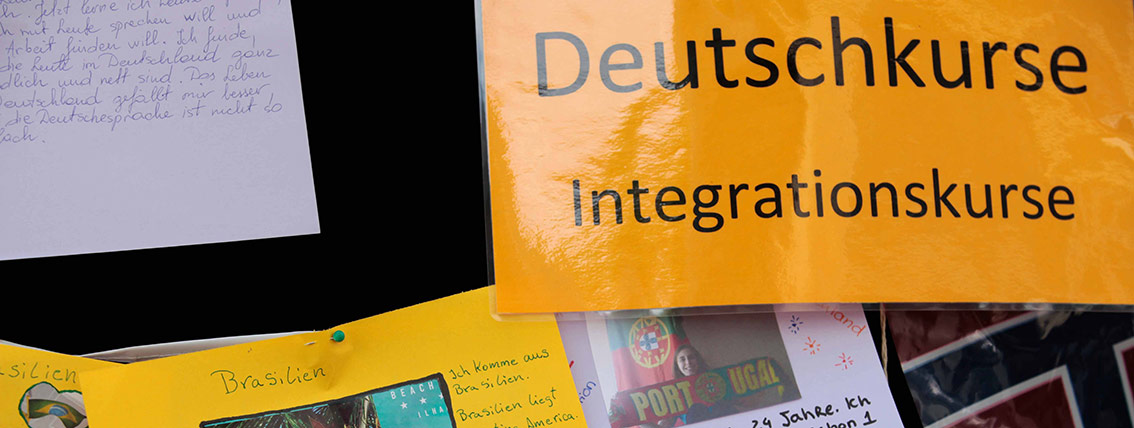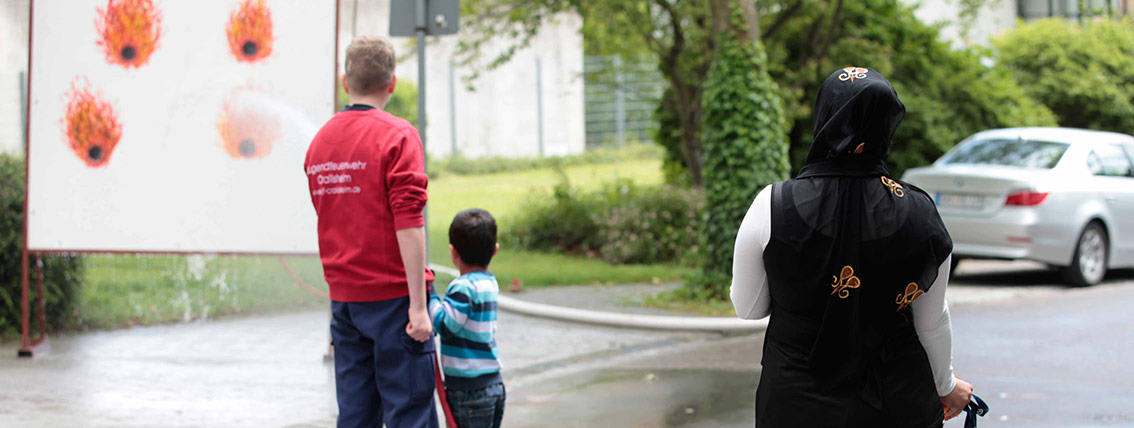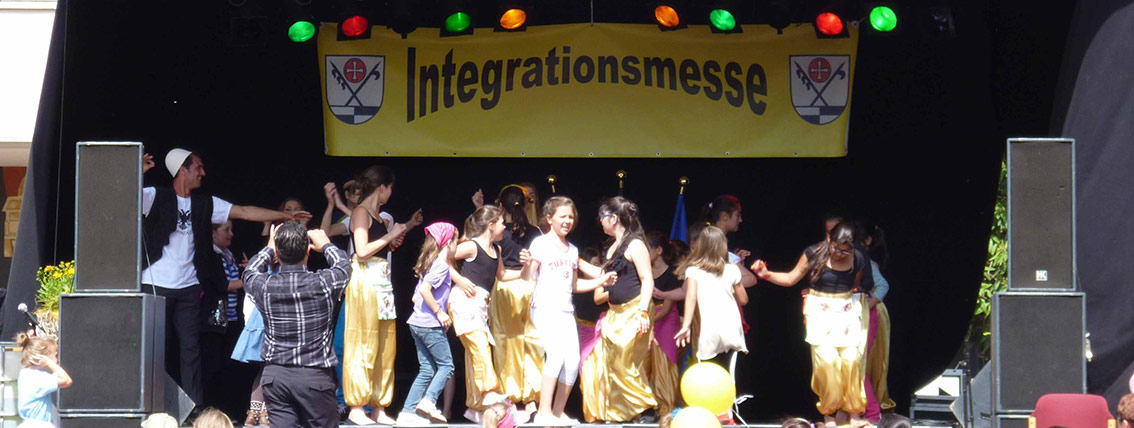1. General Information (Allgemeines)
A foreigner is everyone who is not a German.
Any foreigner wishing to remain in Germany is subject to specific legal regulations.
However, these are not the same for all foreigners. Basically, nationals of the European Union and those of third-country are treated differently. European Union nationals are citizens of member states of the European Union, and some persons are considered legally equal; i.e. the nationals of Liechtenstein, Iceland, Norway and Switzerland (EFTA states).
This particular group of people enjoys special advantages and is granted rights of residence by law.
By the EU’s [EU = Europäische Union] association with Turkey, Turkish citizens and their relatives enjoy specific rights as employees, which also may also have an effect their right of residence (ARB 1/80 [ARB = Assoziationsratsbeschluss]).
The citizens of all other states are citizens of third states. To enter Germany, they must have a visa for any stay or residence. This applies universally except for those countries whose citizens are allowed entry and residence of a maximum of three months by virtue of a visitor’s or tourist privilege. As a matter of principle, members of third states are not authorized to enter into the territory of the Federal Republic of Germany to take up gainful occupation or employment, except where they meet specific exceptional requirements determined by special statutory instruments.
2. Choice of residence (Aufenthaltsmöglichkeiten)
EU citizens and their families
Within the territory of the European Union, EU citizens enjoy almost complete freedom of movement. Such freedom of movement is, as a matter of principle, granted to employees and self-employed persons. Moving to another Member State usually takes place for economic reasons. Citizens of the EU and of the European Economic Area (EEA) ([EWR = Europäischer Wirtschaftsraum]) (Iceland, Liechtenstein and Norway) as well as their family members with citizenship of a Member State of the European Union also enjoy freedom of movement. Free movement means free entry, free choice of residence, free movement and free gainful occupation, and thus implies much similarity to the status of a German national. You neither need a visa for entering into Germany nor a residence permit for your stay. You also do not need a work permit.
However, you need to register at the municipality within two weeks after arrival, if you have the intention of staying for more than 3 months. In this case, you also must submit a copy of your passport/ID. The competent Aliens Authority may demand proof within a certain period that the requirements for being granted the right of an EU citizen entitled to free movement are fulfilled, if there are clues that the relevant applicant may not be entitled to such freedom of movement. This is always the case if such person is unable to ensure his/her own livelihood and health insurance. The required information and evidence can be submitted to the competent municipal authority upon registration. These documents are then forwarded to the Aliens Authority.
Asylum section
Asylum seekers, who were incontestably recognized as persons entitled to asylum or as refugees are normally granted a residence permit for three years, which also entitles them to take up employment. They also receive refugee travel documents that allow them to travel abroad. A temporary residence permit for one year is issued to persons to whom subsidiary protection pursuant to Section 4 (1) Asylum Act of the Federal Office for Migration and Refugees (BAMF) has been granted.
Non-EU nationals (Third country nationals)
As a rule, citizens of third countries need a visa for entering into Germany. The issue of a visa requires the submission of an application by the foreigner concerned to the diplomatic mission in his home country. Under the Residence Act (Aufenthaltsgesetz), a visa is a residence permit. It therefore also confers a right of residence. It is usually valid for 3 months. If the visa is not being applied for for tourist purposes but for permanent residence (e.g. family reunion), then the diplomatic mission must obtain the consent of the Foreign Nationals Registration Office (Ausländerbehörde) before granting the visa. An application for a residence permit must be submitted to the Foreign Nationals Registration Office while the visa is still valid. It will then make a decision with respect to the extension of the stay.
Residence permits (Aufenthaltserlaubnisse) are issued as:
Residence permit (Aufenthaltserlaubnis):
Residence permits are issued for limited periods. They are issued for specific purposes, such as study, language courses, attending school, work, Family Reunification, children joining patents, etc. They will be extended in accordance with the requirement of the stay, and the conditions for a permanent residence permit have not yet been met
Blue Card (Blaue Karte):
The Blue Card EU is issued with the objective of encouraging highly qualified third-country citizens to immigrate into and to take up permanent residence in Germany. The Blue Card is aimed at contributing to making the German labor market more attractive to highly qualified employees from abroad and to counteract skilled labor shortage.
Permanent residence permit (Niederlassungserlaubnis):
The permanent residence permit is an unlimited permit. It entitles its holder to pursue gainful occupation, is unlimited in terms of time and location, and - as a rule - cannot be provided with an ancillary clause.
Permission to stay permanently within the EU (Erlaubnis zum Daueraufenthalt-EU):
With this residence permit, after a long-term stay in an EU country, nationals of third countries may move to another EU country for a long period; e.g. to work. Toleration (Duldung): Toleration is not a residence permit, but only a temporary stay of deportation (Abschiebung). for as long as there is an obstacle to deportation.
3. Invitations to Visitors - Submission of a declaration of commitment (Einladung von Besuchern - Abgabe einer Verpflichtungserklärung)
A declaration of commitment by their hosts living in Germany is often required for foreigners who must have a visa for their visit. The Aliens Authority will provide you with information regarding visa-exempt countries. Application forms for the declaration of commitment can be obtained from the Aliens Authority. The application forms can also be downloaded from the website of the Schwäbisch Hall Administrative District using the above Internet address. The documents usually required are the 3 latest payslips, whereby self-employed persons need a certificate confirming their net monthly income, and a valid passport. The Foreign Nationals Registration Office will then check the creditworthiness and, in the event of a positive result, issue a declaration of commitment (Verpflichtungserklärung) which costs 25.00 Euros. With this declaration of commitment, a visitor’s visa can be applied for at the German embassy in the country concerned. The German embassy has the sole right to decide about the visa. The declaration of commitment does not guarantee the issue of a visitor’s visa. The Foreign Nationals Registration Office is not involved in the decision. The declaration of commitment which is not presented to the embassy within 6 months will no longer be recognised.
4. Family Reunification (Familiennachzug)
A visa application must be submitted to the German embassy in the home country for each Family Reunification. This will then be passed on to the responsible Foreign Nationals Registration Authority (Ausländerbehörde) in Germany, via the Federal Administration Office (Bundesverwaltungsamt) for checking, online in advance. The Foreign Nationals Registration Authority will check whether, based on existing regulations, an approval for the issue of a visa is permissible, and will forward the result to the German embassy, online. As a rule, since August 2007, wives wishing to join their husbands must present proof of their knowledge of the German language in the form of an A1 Certificate from the Goethe-Institut together with their the visa application.
Family Reunification for German nationals:
There must be a legal right for such unification. The unification of unmarried minors with their parents is possible.
Family Reunification for third country nationals:
A legal right does not exist in all cases. In such cases, the Foreign Nationals Registration Authority must, at its reasonable discretion, make Family Unification possible, subject to certain requirements being met. For Family Reunification, a number of general requirements must be met; in particular, a secure livelihood and sufficient living space.
Civil Union (Lebenspartnerschaft):
In Germany, same-sex couples may enter into a civil union. Foreign partners have the same Family Unification rights as spouses .
Child Unification:
In principle, children have a right to Family Unification up to the the age of 16, if both parents live in Germany and possess residence or settlement permits. Where only one parent is in Germany, the Foreign Nationals Registration Authority has some discretion. Family Unification between the age of 16 and adulthood is only possicle under certain conditions, or in cases of hardship, and with the approval of higher levels within the Foreign Nationals Registration Authority (Regional Council in Stuttgart).
Family Reunification for other family members:
For example, adult children or grandparents may, in exceptional cases (discretionary issue of residence permits) join their families in Germany if that is necessary to avert exceptional hardship. A secure livelihood, sufficient living space and adequate health insurance must be assured. In such cases the approval of the Regional Council in Stuttgart must also be sought .
Family Reunification of EU nationals with EU nationals:
Family members of EU citizens can enter without a visa. By their entry, they acquire the right of residence by virtue of legal fiction. The Authority will no longer issue any specific certificates. Confirmation of the registration is sufficient.
Family Reunification of third country family members with EU nationals:
The Family Reunification of third country family members with EU nationals is based on the EU‘s Freedom of Movement Act (Freizügigkeitsgesetz/EU).
5. Upgrading a Temporary Right of Residence (befristetes Aufenthaltsrecht)
The residence permit (Aufenthaltserlaubnis) is issued for a limited period. After repeated extensions, the residence becomes established and, after 5 years and subject to any other requirements being met, a permanent residence or settlement permit will be granted. For persons living with German citizens in long-term family relationships, permanent residence is already possible after three years.
For young people born in Germany or who came to Germany as minors for the purpose of Family Unification, in principle, their right of residence can be reinforced at the age of 16 by the issue of a settlement permit.
The ability for the immediate grant of a settlement permit to highly qualified people is new. A positive integration prognosis and a secure livelihood without government assistance are required.
EU nationals acquire a right of residence after a period of 5 years, independent of community law requirements.








